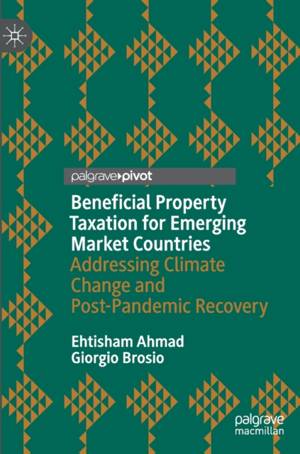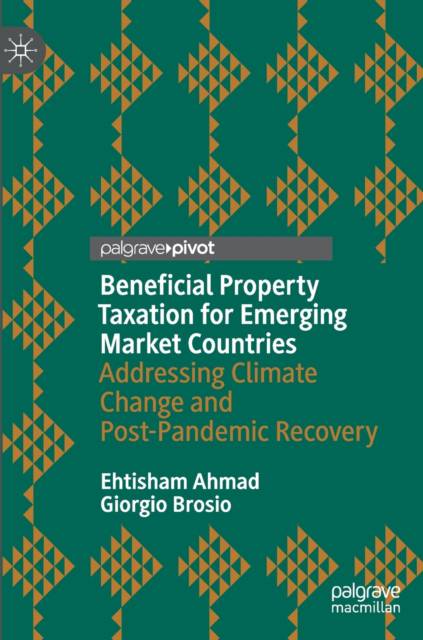
- Retrait gratuit dans votre magasin Club
- 7.000.000 titres dans notre catalogue
- Payer en toute sécurité
- Toujours un magasin près de chez vous
- Retrait gratuit dans votre magasin Club
- 7.000.000 titres dans notre catalogue
- Payer en toute sécurité
- Toujours un magasin près de chez vous
Beneficial Property Taxation for Emerging Market Countries
Addressing Climate Change and Post-Pandemic Recovery
Ehtisham Ahmad, Giorgio BrosioDescription
This book presents a new approach to recurrent property taxation based on occupancy, size, and location, that will strengthen local governments. Reflecting on the concept of "beneficial property taxation" first proposed by Alfred Marshall, the political economy constraints faced by traditional property taxation are examined and compared with evidence for beneficial property tax seen in China, Mexico, and sub-Saharan Africa. The benefits of this form of taxation are highlighted in relation to the financing of local public services and infrastructure that are required for sustainable development.
This book provides a policy-oriented look at property taxation that engages with the sustainable development goals and lay the foundations for a post-pandemic recovery. It will be relevant to researchers and policymakers interested in development economics and the governance of taxation.
Spécifications
Parties prenantes
- Auteur(s) :
- Editeur:
Contenu
- Nombre de pages :
- 156
- Langue:
- Anglais
Caractéristiques
- EAN:
- 9783031086113
- Date de parution :
- 04-11-22
- Format:
- Livre relié
- Format numérique:
- Genaaid
- Dimensions :
- 148 mm x 210 mm
- Poids :
- 367 g







